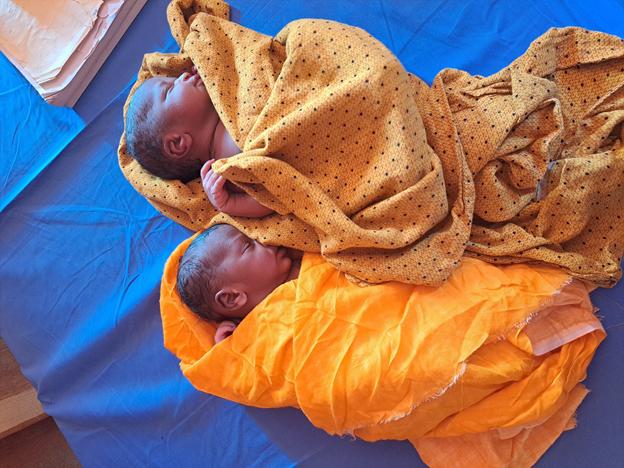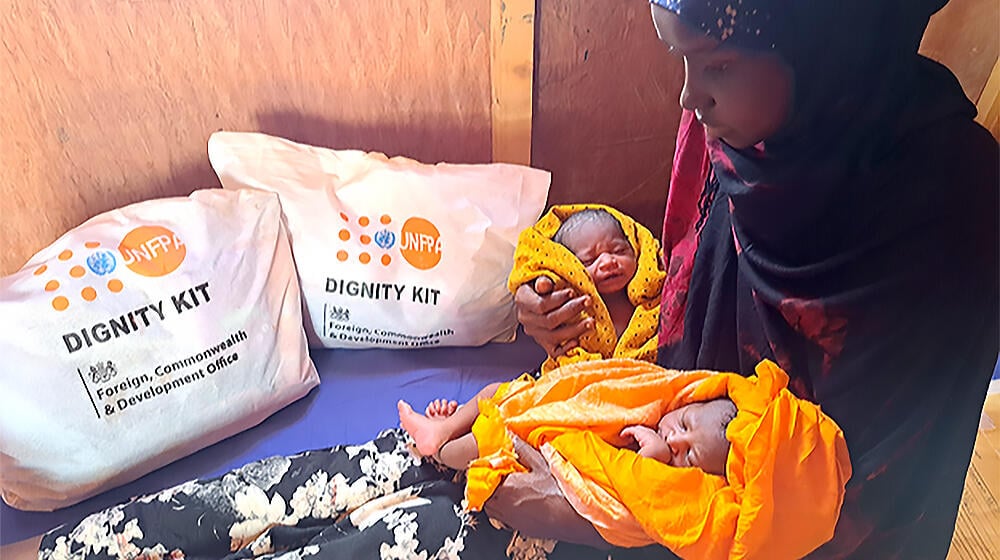In the heart of El Jale, an IDP camp in Kismayo, Somalia, resides a young woman named Nurto Osman, whose strength and resilience have been tested through the trials of life. Nurto, a 25-year-old mother of five, has faced unimaginable challenges but found solace and support in unexpected places.
A year ago, Nurto and her family fled their home in Nafta Quur, compelled by the crippling grasp of drought that left their once-thriving farming community in ruins. They embarked on a journey in search of a better life and safety, leaving behind the familiar comforts of their rural existence. "We were farmers and survived on the little we could get, but it was better. The drought came, and we had to leave. We spent days on the road looking for where we could get any assistance," Nurto recalls with a hint of nostalgia.
Life in the IDP camp has not been easy for Nurto and her husband. Her husband is deaf and unable to contribute to their family's well-being. Despite their own struggles, Nurto remains grateful for her community and neighbours. In a place where resources are scarce, they share whatever little they have. "I am thankful for this community and my neighbours. We share what little we can. I also believe and have faith Allah will provide," Nurto says, her voice a testament to her unwavering faith.
Upon her arrival at the Baxnano facility, the only Basic Emergency Obstetric Care (BEmOC) centre in El Jale, Nurto was received with warmth and care. Run by the Somali Lifeline Organisation (SOLO) with the support of the United Nations Population Fund (UNFPA), this facility became a beacon of hope for Nurto. In the capable hands of midwife Faiza, Nurto found not just medical attention but also a guiding presence during her active labour.

Nurto's journey took a joyous turn when she gave birth to healthy twin girls. Despite the challenges of a breech presentation, midwife Faiza's skillful care turned potential complications into a successful delivery. The presence of the Baxnano facility made all the difference, preventing Nurto's delivery from becoming a dangerous and harrowing experience.
With gratitude in her heart, Nurto speaks highly of the care she received. "I am grateful to the midwife and UNFPA for the care and support they have given me," she says. She is keenly aware of the struggles that other women in her community endure while giving birth at home, lacking access to proper medical care. Nurto is determined to be an advocate for change. She promises to share her experience with fellow women, encouraging them to seek help at the facility, especially during childbirth.
As Nurto continues her journey, the UNFPA-funded health facility stands as a symbol of transformation. The facility not only provides vital medical services but also offers dignity kits, family planning options, and counselling to women like Nurto. Through funding from the Foreign, Commonwealth & Development Office (FCDO) and other donors, and with the technical support of UNFPA, mothers in El Jale are given a lifeline to safe births and a healthier future.
Nurto's story is one of resilience, community support, and the transformative power of accessible healthcare. Her determination to share her experience and uplift others exemplifies the strength of the human spirit, even in the face of adversity. As Nurto looks ahead to her twins' future, she does so with hope, gratitude, and the knowledge that she is part of a network of care that can change lives.
UNFPA's support for the Baxnano facility is just one example of its commitment to improving the health and well-being of women and girls in Somalia. Through its programmes and partnerships, the UNFPA works tirelessly to ensure that women like Nurto have access to the healthcare they need and deserve.
In Somalia, UNFPA's efforts are focused on addressing the critical needs of women and girls, particularly those affected by conflict, displacement, and poverty. By providing access to reproductive health services, safe childbirth, and birth spacing, as well as services to respond to gender-based violence, the UNFPA empowers women to take control of their lives and futures.


